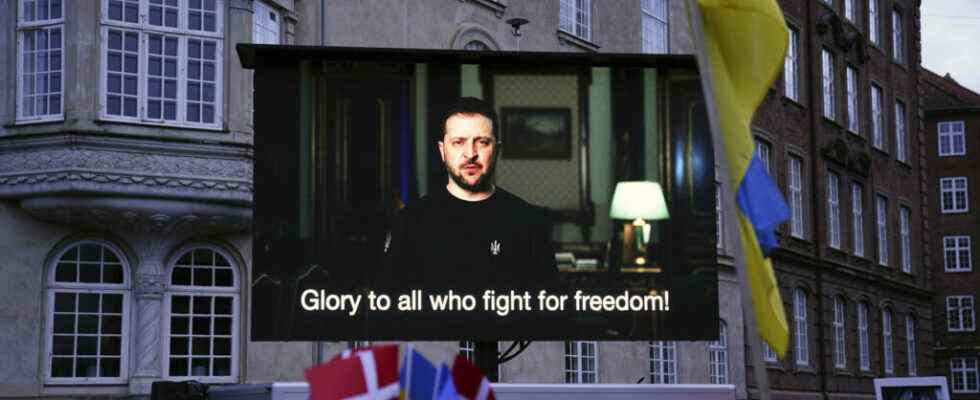Focus on the blind spots of media coverage of the war in Ukraine, one year after the start of the Russian offensive.
The 12,000 journalists accredited during the war in Ukraine testify to the mobilization of the editorial staff for this conflict which was the first subject covered in France last year, with 27% of headlines, according to the Onclusive institute. And yet, there are blind spots. If massacres like that of Boutcha are well documented, in particular by the New York Times who stayed there for eight months to be able to incriminate the Russian 234th Parachute Regiment, it is much more difficult to get an overview of the losses on both sides.
The Norwegian general staff speaks of 180,000 wounded and killed on the Russian side against 100,000 Ukrainians. The British bring the same estimates on the Russian side, specifying that there would have been between 40,000 and 60,000 dead. But kyiv also speaks of “ 800 Russian soldiers killed per day “, which brings Le Figaro to speak of a impossible to count for both sides “.
Trolls and fake news
Propaganda is also active. On the side of the Kremlin, the invasion is first euphemised under the term “ special military operation and justified by the lie of the ” Nazification of Ukraine “. Evgueni Prigojine’s troll factories take over to create a story with a lot of manipulated images or contestation of crimes.
If Russia deploys in fake news, Ukraine relies more on communication with a head of state who goes to the front and restores courage. Zelensky goes to Washington or Brussels and sends videos to Strasbourg, but also to Cannes for the film festival or advertising. Nor does it prevent propaganda, such as when Kiev falsely claimed that the Jewish memorial at Babi Yar had been bombed, at the start of the war, or that a Russian missile had fallen in Poland when it was a firing of his defence.
Accreditations withdrawn
Moreover, today it is difficult to see the war from the Russian side. The incursions of the Western press on the front zone, even very supervised, have not been authorized by Moscow since the summer. In the Donbass, a reporter from The Economist regretted that he could not verify whether the Ukrainians were bombing civilians in Donetsk, as pro-Russians say.
And for lack of correspondents in Russia, the power games between the Kremlin, the general staff and the Wagner militia escape the Western media. On the Ukrainian side, it happens that accreditations are withdrawn for a few days, as was seen in Kherson by reporters from TF1, CNN and Skynews, deemed too close to the front lines. Of course, there is also propaganda there, but we must never forget that there is an invader and an invaded.
► To listen also: The falsification of history, the basis of the Russian mobilization against Ukraine
